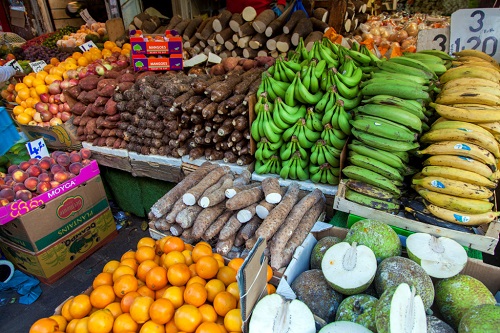Africa’s Food Consumption Reaches 1.3 Billion Tons Annually, Tripling Since 1990 – Report
The 2024 Africa Agriculture Status Report paints a striking picture of the continent’s evolving food economy, revealing that Africa now consumes 1.3 billion tons of food annually, according to the Food and Agriculture Organization Statistics (FAOSTAT) data.
This marks a threefold increase in food consumption since 1990, far outpacing the continent’s 2.4-fold population growth over the same period.
Food production has similarly surged, rising from 414 million tons in 1990 to 1.18 billion tons in 2022, while imports have skyrocketed from 42 million tons to 198 million tons.
Exports have also expanded, growing from 15 million tons in 1990 to 62 million tons by 2022. However, domestic consumption remains dominant, with between 85% and 90% of Africa’s food produced and consumed locally.
At the core of Africa’s food economy, the report stresses, is the agri-food private sector. Traditionally viewed through the narrow lens of large enterprises, the sector is, in fact, heavily driven by micro, small, and medium enterprises (MSMEs), which account for 85% of the market activity by volume.
Larger, medium, and multinational enterprises, while representing only 15%, play a critical role in shaping both domestic and export markets.
The report delves into the private sector’s evolving landscape, examining how it can be harnessed to drive food security and support smallholder farmers. The report highlights the structural challenges facing the sector, from policy bottlenecks to operational hurdles, and outlines strategies to unlock its potential.
Key recommendations by the report include fostering innovative business models, addressing regulatory constraints, and implementing supportive policies to enable the private sector to play an even greater role in transforming Africa’s agri-food value chains into more resilient, inclusive, and sustainable systems.
As Africa’s food systems become increasingly complex and globalised, the report calls for a more nuanced understanding of the sector’s dynamics, stressing the importance of leveraging the private sector to bolster the continent’s food production and security.








